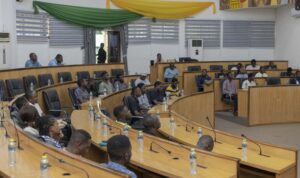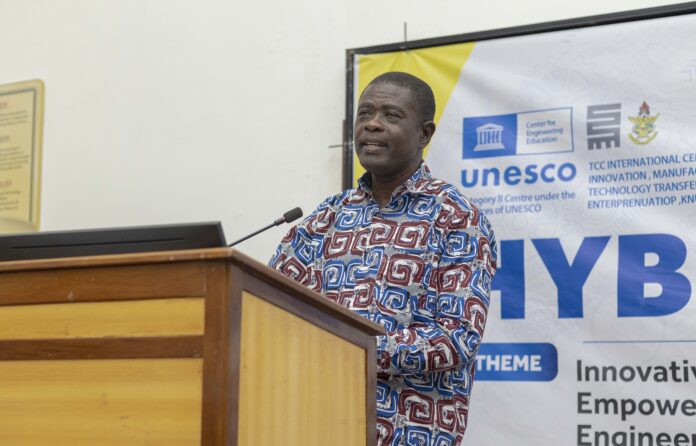The KNUST Technology Consultancy Centre will be equipping engineering students in the sub-region with computer-aided design and smart manufacturing skills for accelerated development.
Speaking at the hybrid webinar for the 10th UNESCO Africa Engineering Week 2024, Director-General Prof. Francis Davis announced that the plan, which aims to include 40% female participants, will be supported by funding from UNESCO partners and other skills development agencies.
“TCC-CIMET proposes to establish a transformative program designed to bolster engineering design capabilities among undergraduate students.
“Through strategic partnerships and innovative training methodologies, we seek to equip the next generation of engineers with the essential skills and tools required for effective design and problem-solving.
“This initiative will fill existing skill gaps and foster a culture of innovation within the engineering communities in the sub-region,” he said.

The 10th UNESCO Africa Engineering Week, under the theme “Innovative Infrastructure Solutions for a Sustainable Africa: Empowering Youth Initiatives and Integrating Indigenous Engineering Principles to Shape a New Paradigm,” seeks to inspire young engineers and students to develop innovative solutions for real-life problems.
The Country Director for UNESCO-Ghana, Mr. Edmund Moukala, urged the youth to combine indigenous and modern practices in finding solutions to problems.
“We can create a new engineering paradigm that prioritizes human needs in the natural environment. As we look towards the future, let us not forget the wisdom of the past; indigenous African engineering has much to offer in terms of sustainable solutions.
By exploring and integrating these time-tested methods into modern engineering, we can create technology that serves humanity and safeguards the planet,” he said.
The Deputy Dean for the Faculty of Engineering and Technology at the University of Ibadan applauded TCC-CIMET for its initiatives to equip students and young engineers with the requisite skills and support to address real-world problems.
The hybrid webinar saw participation from several universities, including the University of Ibadan, Fourah Bay College, Kwame Nkrumah University of Science and Technology, Innovation Centre (KNUST), University of Ghana, UNESCO, and others.

